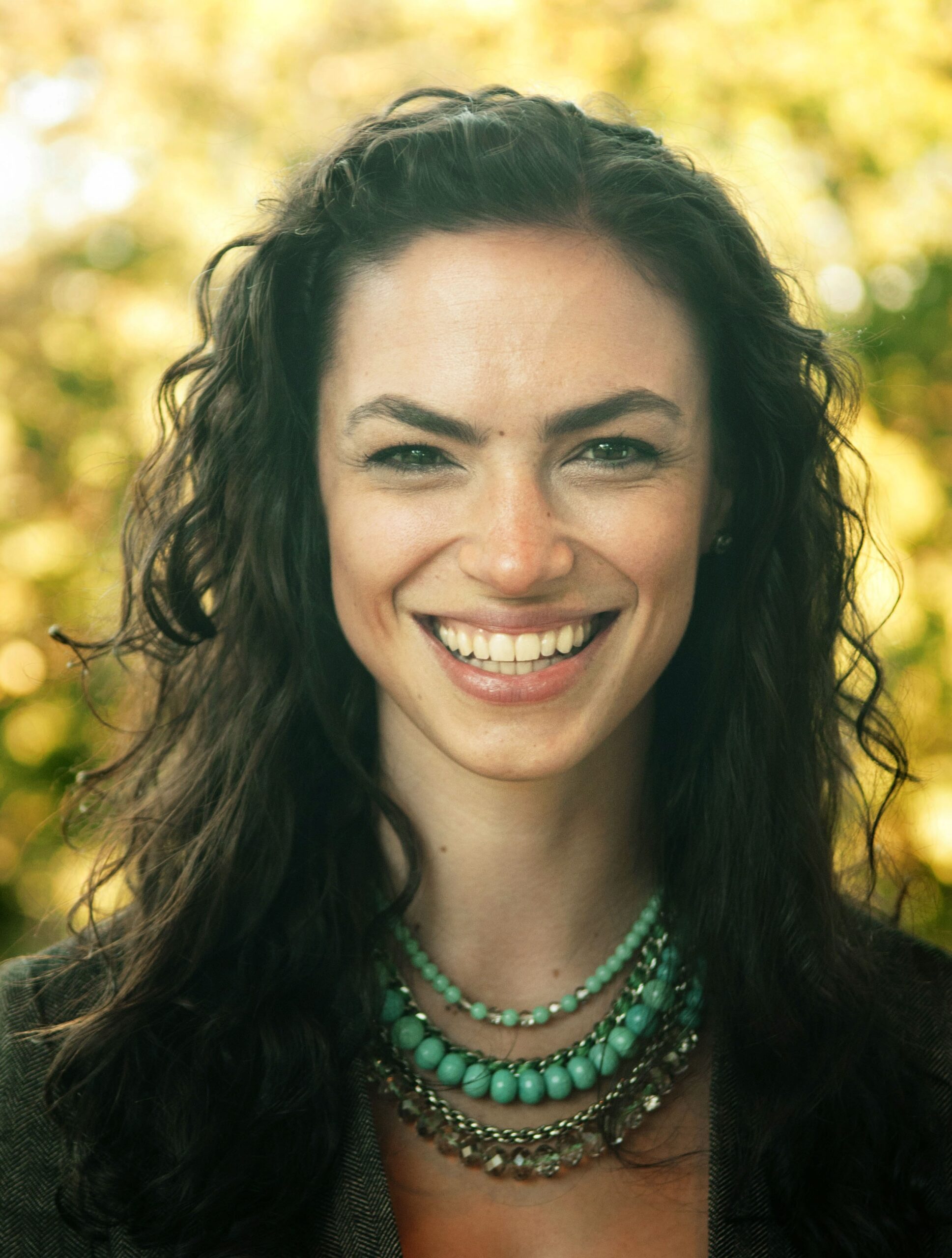We were lucky to catch up with Natania Malin Gazek recently and have shared our conversation below.
Natania, thrilled to have you on the platform as I think our readers can really benefit from your insights and experiences. In particular, we’d love to hear about how you think about burnout, avoiding or overcoming burnout, etc.
I started working for myself about six years ago – very shortly after I received my first chronic illness diagnosis. I’d come from corporate workplaces, with untenable expectations of 24/7 availability, and I found myself, as many of us do, constantly exhausted. When I decided to pursue my own methods of diversity, equity, and inclusion work, I knew that for that work to have its optimal impact, I’d have to do things differently. After all, to make workplaces more equitable for folks across marginalized groups – including people with disabilities and chronic illnesses, like me – I’d need to practice what I was preaching. Part of what that means is having systems in place that keep me from getting burnt out while also allowing me to work enough hours to support myself and achieve strong results.
Here are three of the routines I’ve developed to avoid burnout in the years since:
1: I align on priorities and set clear expectations about availability – both mine and theirs – with my clients. In previous jobs, I checked my email and Slack regularly after hours and during breaks to make sure I was getting back to folks right away. In other words, I treated all communications as urgent. As a result, I was rarely not thinking about work (at least in the back of my mind). This took a toll. I was never really getting a break. Now, I don’t allow myself to do this. (You’ll read how in routines two and three below.) To enable this, I regularly align with my clients and other collaborators about deadlines and priorities, making sure we understand each other’s working hours and preferred modes of communication. This allows me to make sure I’ll be available when I’m needed, that I’m getting folks what they need when they need it, and that my colleagues and clients aren’t extending their own hours beyond what’s needed on my account. If we’re working on something truly urgent (which is not that often, because this is not emergency medicine), I make myself more available and check in more often – but as an exception to the norm, not the ongoing norm.
2: I keep work notifications off of my phone during non-work hours. To enable this, I make sure that during the hours when I AM working, I’m available to my clients, and they know that through regular check-ins. But when I’m not working, I’m really not working! My brain is free to focus on the other things it needs to focus on, whether that’s my health, my personal life, or a trashy TV show that’s helping me escape from the world for a while. If a client emails me during non-working hours about something that isn’t truly urgent (see the routine above to learn about how we plan for this), I’ll see it when I log back in – and not before.
3: I keep one day each week meeting-free. For me, No Meeting Wednesdays have become key to my quality of life. It’s one day per week that I keep free from client appointments, Zoom calls, and other collaborative meetings. (I default to Wednesday, but I switch it when I need to.) This has tons of direct and indirect benefits to both my work and my wellbeing. At the top of the list: I get more rest (so I’m healthier and happier), and I get more, higher quality work done.
I feel really lucky that all of the above is within my control as someone who runs their own business. For those who don’t, I wrote a piece about how you can make structural changes in your workplace to help your staff avoid chronic burnout. Check it out here! https://nmgazek.com/resources/making-work-more-sustainable
Thanks for sharing that. So, before we get any further into our conversation, can you tell our readers a bit about yourself and what you’re working on?
I’m a diversity, equity, and inclusion (DEI) consultant – which means something different to just about every single DEI consultant out there. In my case, it means that I work with organizations that have strong intentions around how demographically diverse they want their staff to be, how equitably they want to treat their staff, and, as a result, the sense of inclusion they want their staff to feel at work across identity groups. Together we assess the gap between those intentions and their staff’s actual experiences. Then I design and help them implement strategies to bridge that gap. Sometimes, that means working together long-term to fully integrate DEI best practices into the systems, structures, and processes that shape the organization’s culture. Other times, it means facilitating a one-time workshop or writing/updating a policy to help an organization move one step forward in their DEI journey.
Something I love most about my work is witnessing and guiding people’s personal and professional growth. Sometimes it’s a workshop participant who shares their relief in having space to name out loud their company’s cultural issues that were previously pushed under the rug. Other times it’s a leader who starts understanding some of these issues and asks for support to implement changes. And other times it might be a long-term strategy client who feels renewed confidence in their area of expertise because of new ways they’ve learned to navigate their organization. Regardless, being part of this growth is something I hope I’ll never take for granted.
My newest service is a self-paced online course about equitable hiring and recruiting. Even if their organizations aren’t ready to host a training for a larger group yet, this self-paced offering allows individuals to learn my hiring method, which my clients love because of the ways it addresses their biggest recruiting and hiring challenges. I’m thrilled with the positive feedback it’s received so far. You can check it out here: https://nmgazek.com/hiring-course
Looking back, what do you think were the three qualities, skills, or areas of knowledge that were most impactful in your journey? What advice do you have for folks who are early in their journey in terms of how they can best develop or improve on these?
Learning about and exploring my identity as a white person (and taking responsibility for the impact my whiteness can have on others) has been critical for me in my journey as a DEI consultant – and as a human. Growing up (in the 80’s, 90’s, and early aughts), I believed/was taught that I wasn’t white because I’m Jewish, and that whiteness is “nothingness,” or a lack of ethnicity. But as I moved through my early career, it became clear that this logic didn’t quite add up – so I sought out opportunities to learn different ways of understanding my racial identity.
In my professional life, I’ve participated in (and continue to seek out) workshops and accountability groups to better understand and work through the implications of being racialized as white while also being Jewish. I’ve learned that whiteness is very much something. I’ve learned that being racialized as white has had a very real impact on how I’ve been treated in the world, that being a white Jew comes with its own set of painful racist/antisemitic experiences and important antiracist responsibilities. I’ve learned that I have caused and can cause racialized harm, especially when I try to ignore my whiteness. And I’m learning more every day, changing how I engage with the world around me because of that.
If you’re a white person who wants to learn more about your racial identity (or if you want to learn more about any element of your identity that is associated with a group that plays an oppressor role in society, regardless of your race), I highly recommend finding workshops and/or accountability groups that will provide space for you to be held through this journey and stay accountable to changing your behavior as a result. This is a lifelong journey, so I find that the best way in is whichever one is going to help you take your first step. A few things to keep in mind as you’re evaluating your options:
1. Pay attention to who (if anyone) is profiting from your learning – and who isn’t. For example, if you’re considering joining a group claiming to be teaching you about antiracism and the facilitator is white, is there a co-facilitator of color? Is the white facilitator donating a portion of their proceeds to BIPOC-run organizations? What BIPOC thought-leaders did they learn from, and how are they crediting those teachers?
2. Race is just one aspect of our identities – and the ways in which we experience and perpetuate racism are often impacted by our other identities. That means that learning about your whiteness alongside folks who share another identity or two in common with you can be especially helpful (and feel more useful). For example, I’ve found doing personal race work alongside other white Jews, other queer white women, and other white folks with chronic illnesses to be particularly productive. Consider what non-racial identities you hold that impact how you experience and perpetuate racism, and seek out groups where you’ll find folks who share those identities if that would feel good for you.
3. White folks are notorious for reading non-fiction about race as our first line of doing race work and educating ourselves. But there are so many other ways to educate ourselves that are useful and important! Consider who creates the media you consume, writes the fictional novels you read, produces the news you listen to, etc. Want some support working through this? I developed this free allyship workbook to help: https://subscribepage.io/htayi
Who is your ideal client or what sort of characteristics would make someone an ideal client for you?
My ideal clients are organizations and leaders who care about DEI and feel curious about how they can do better! I take a highly collaborative approach to my work, and I work across sectors and industries – so I bring the DEI subject matter expertise, and my clients bring their functional expertise. I’ve seen incredible results when my clients approach our work with curiosity – a more effective tool for change than judgment. It’s so fun for me to find unique opportunities to strengthen an organization’s ability to pursue its mission by helping it operate in a more values-aligned way. If this sounds like it could be you, I’d love to chat! You can reach out at [email protected]
Contact Info:
- Website: https://nmgazek.com/
- Instagram: https://www.instagram.com/nmgazek_dei/?hl=en
- Linkedin: https://www.linkedin.com/in/natania-malin-gazek/
- Other: Mailing List: bit.ly/NMGEmailList Quick Links: https://bio.site/NMGazek
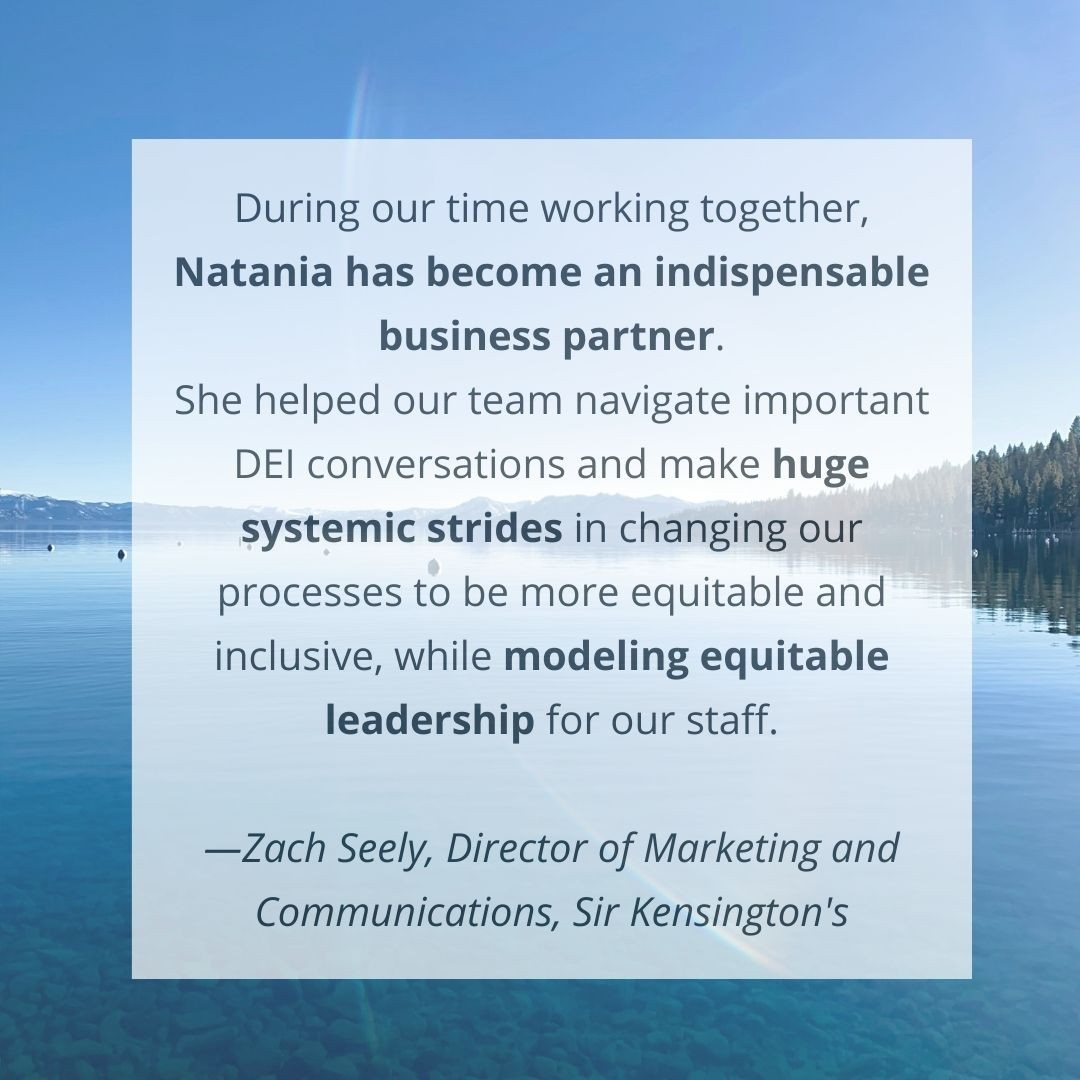
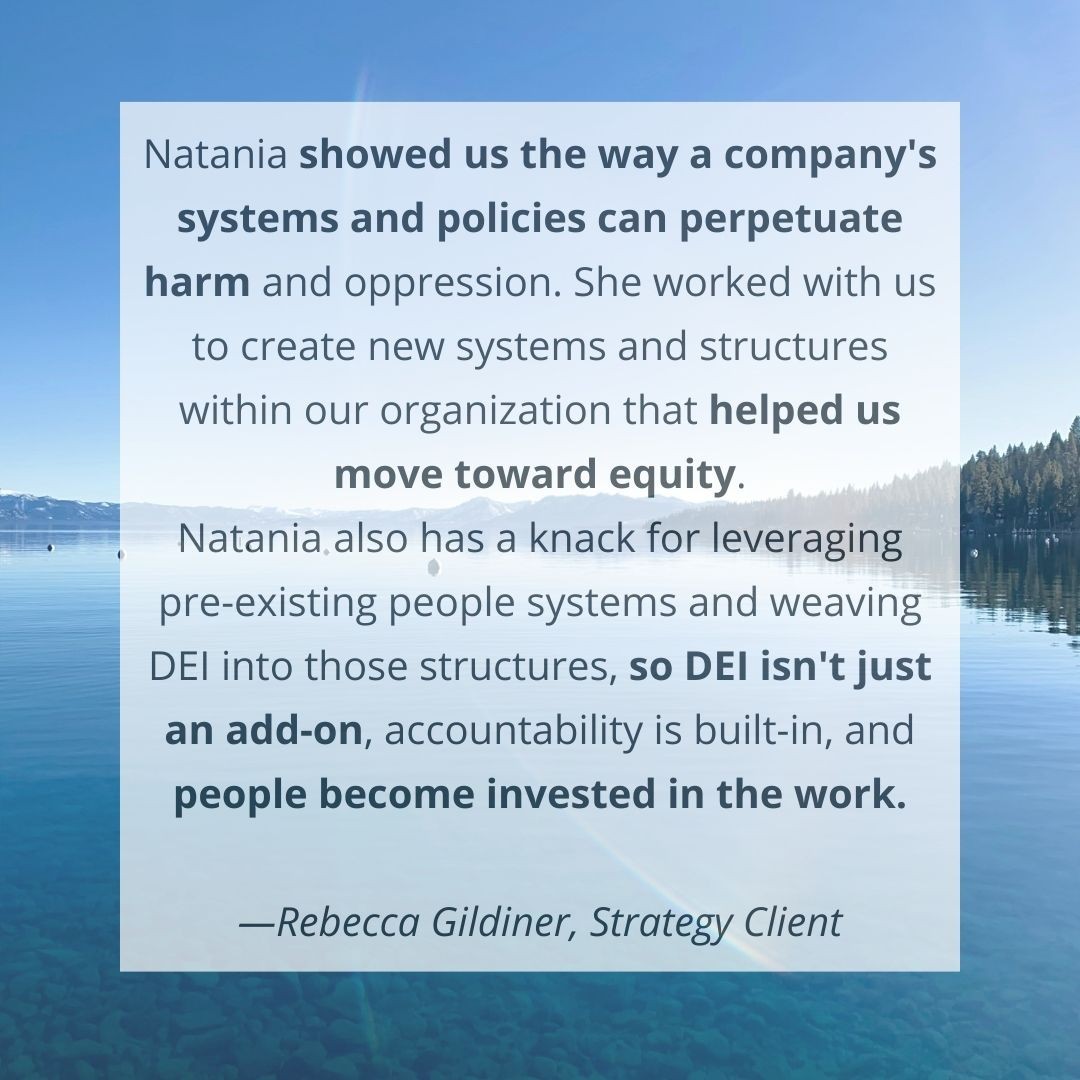
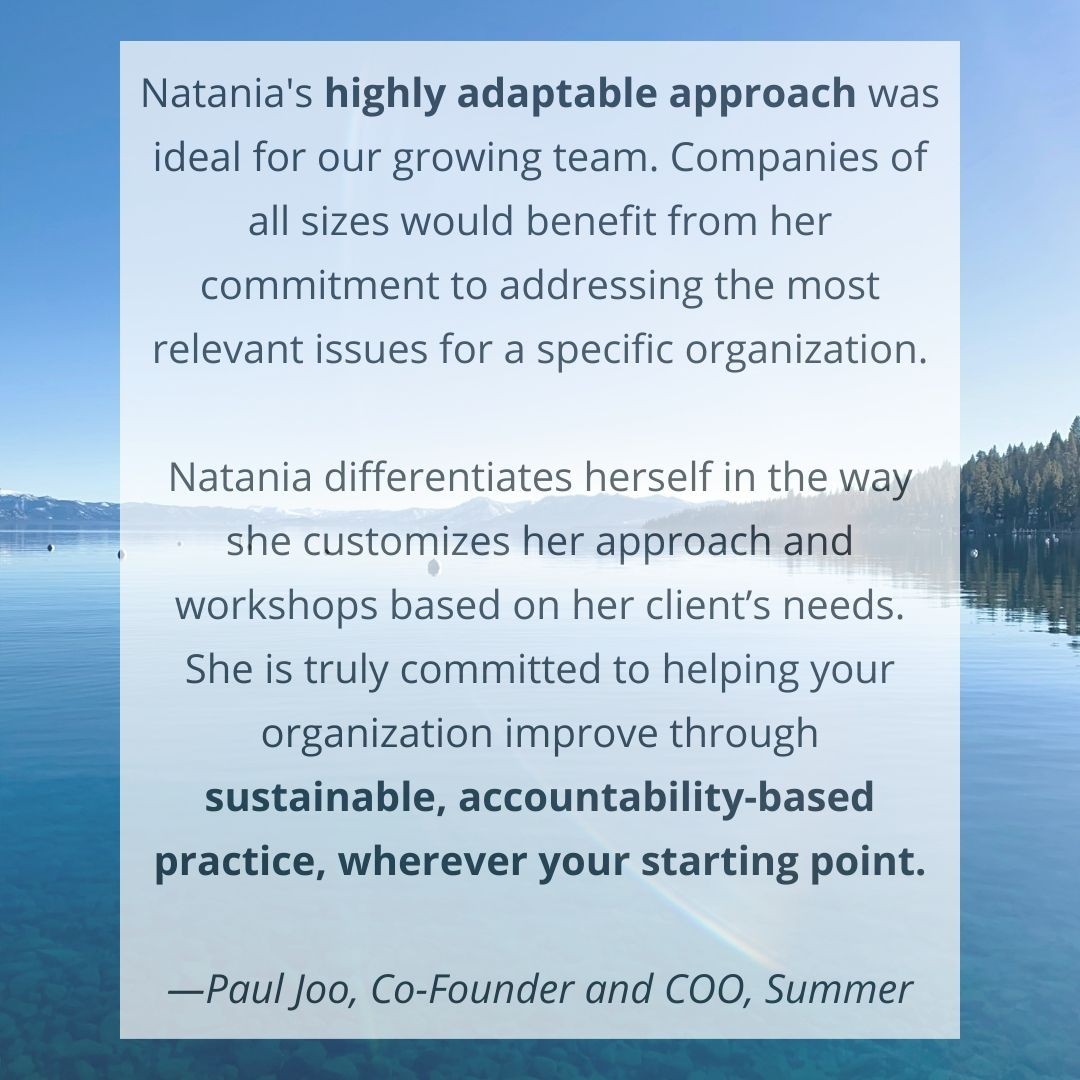
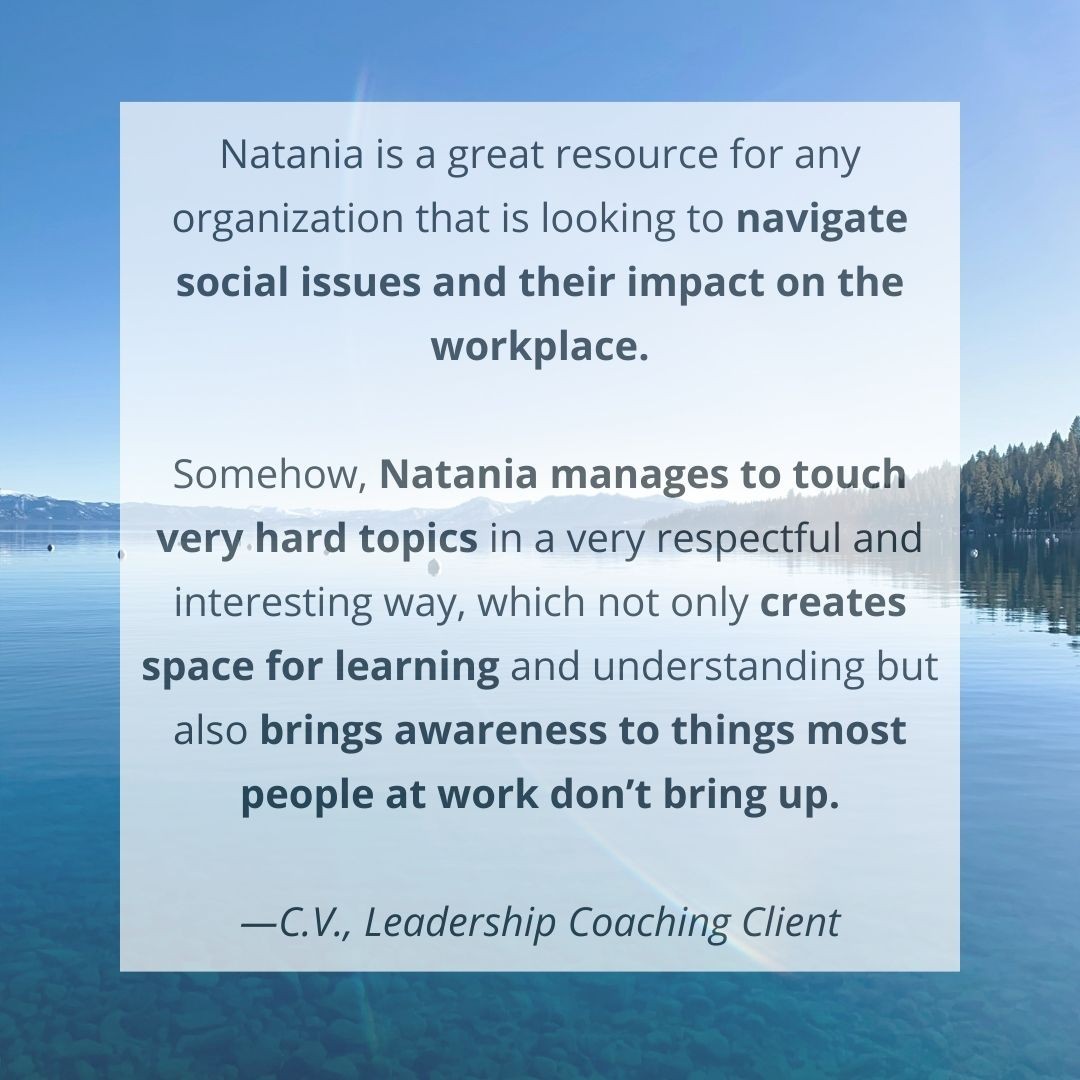
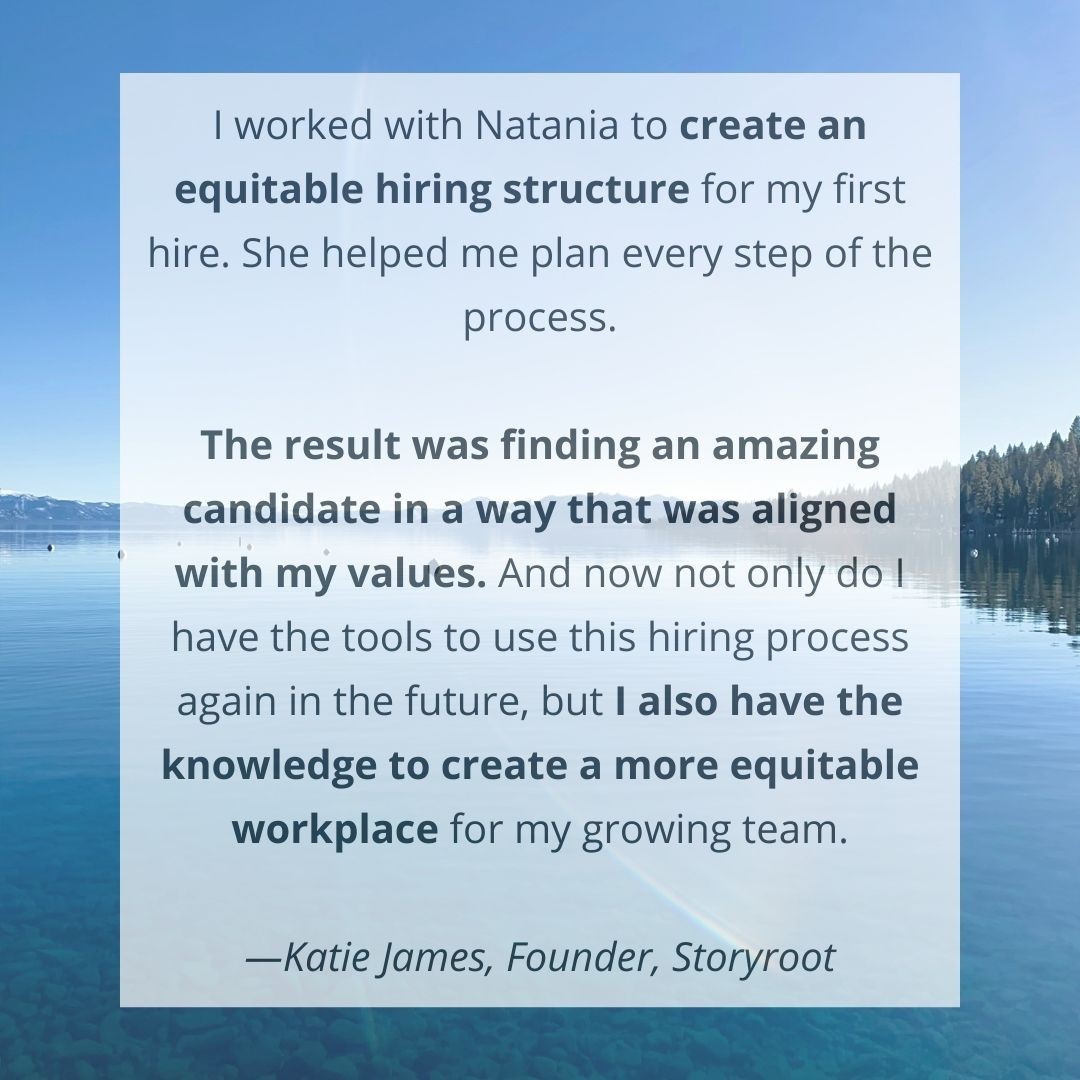
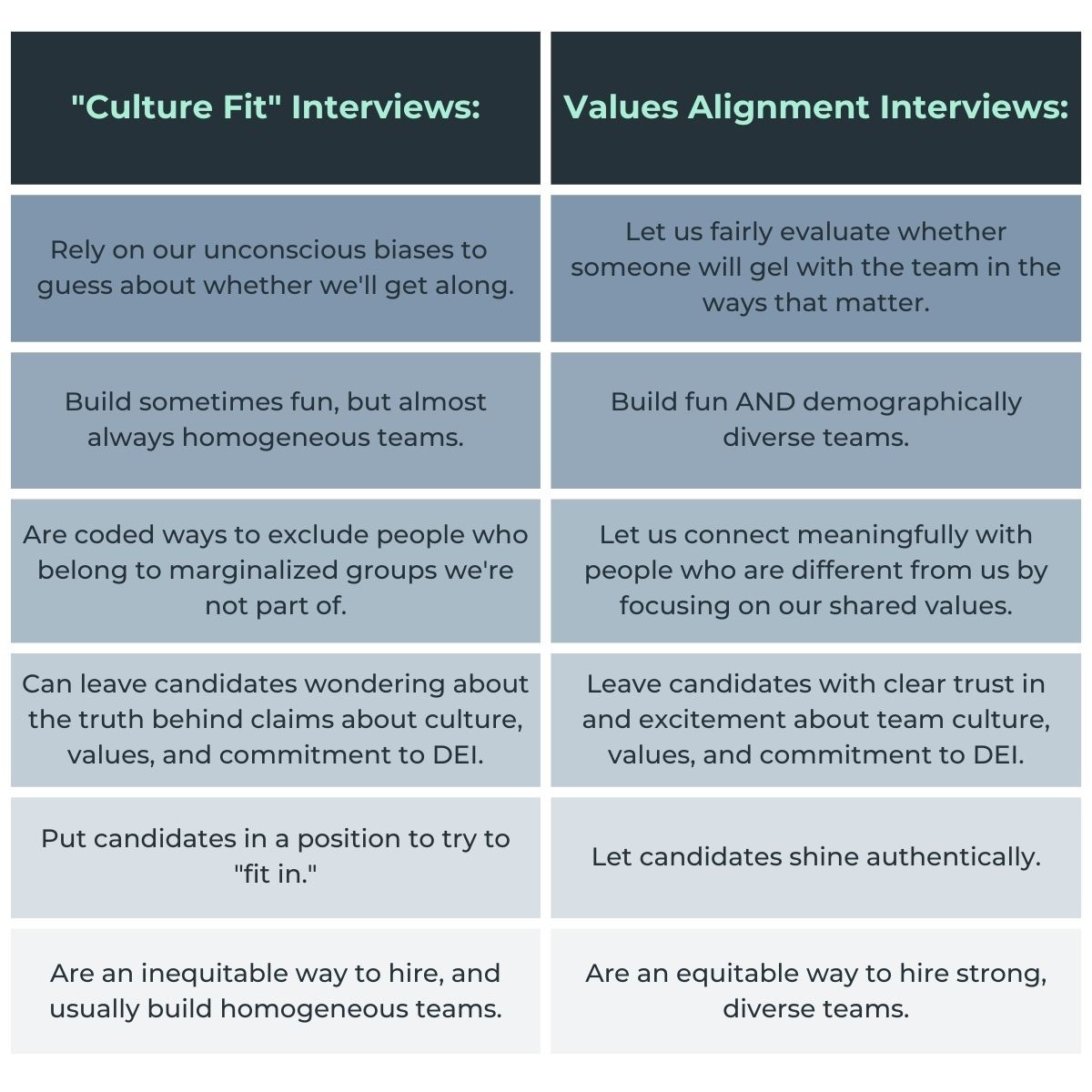
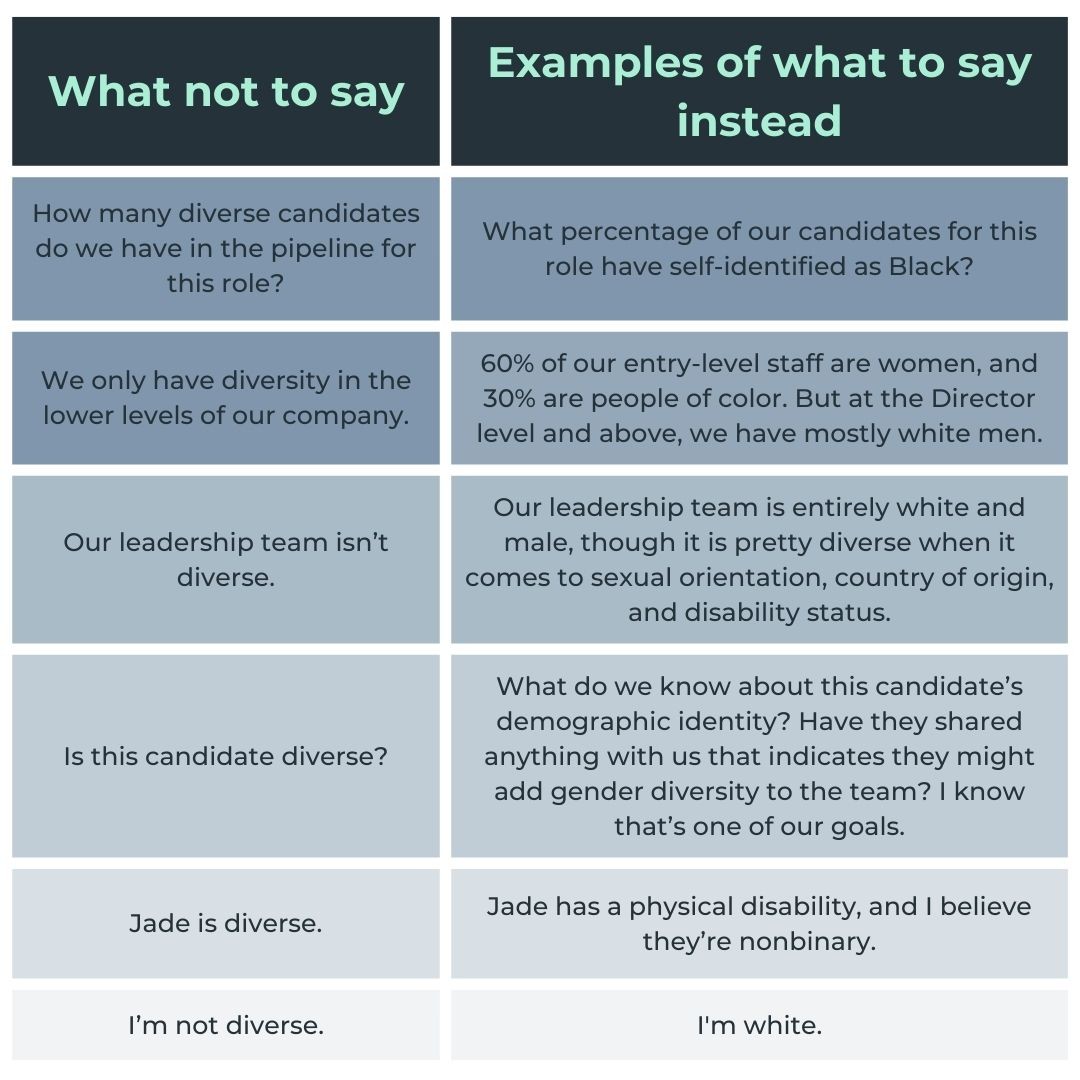
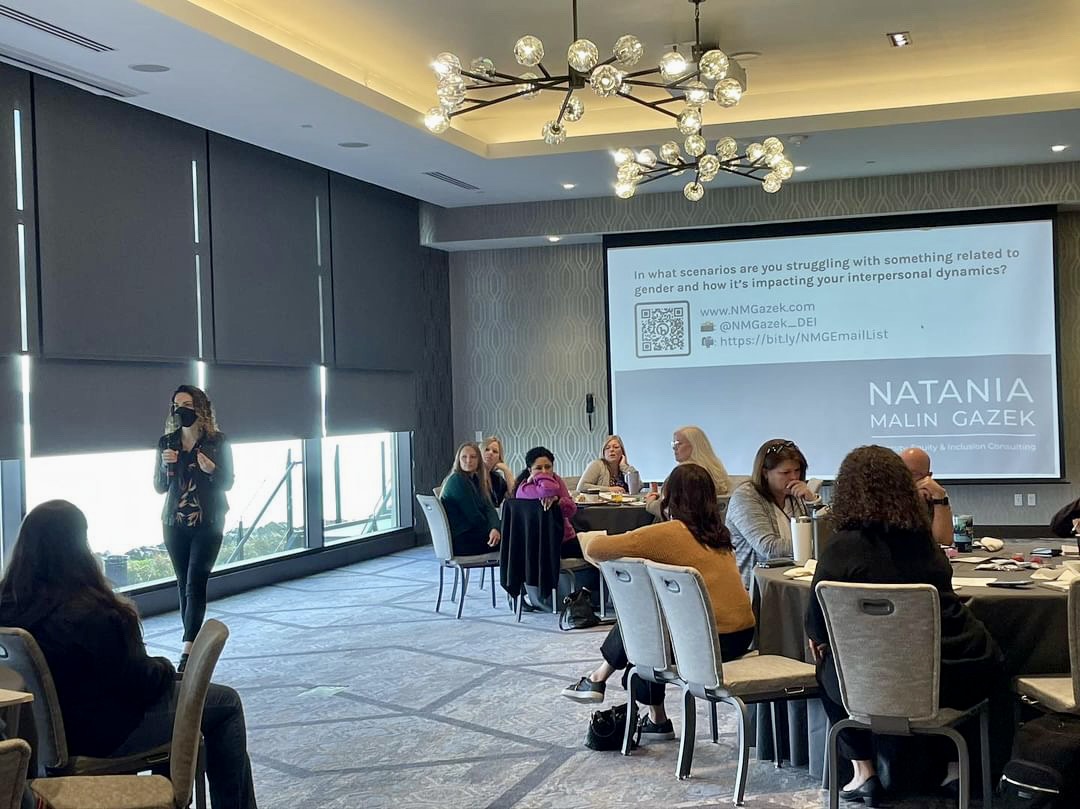
Image Credits
NMGazek Diversity, Equity, and Inclusion Consulting

